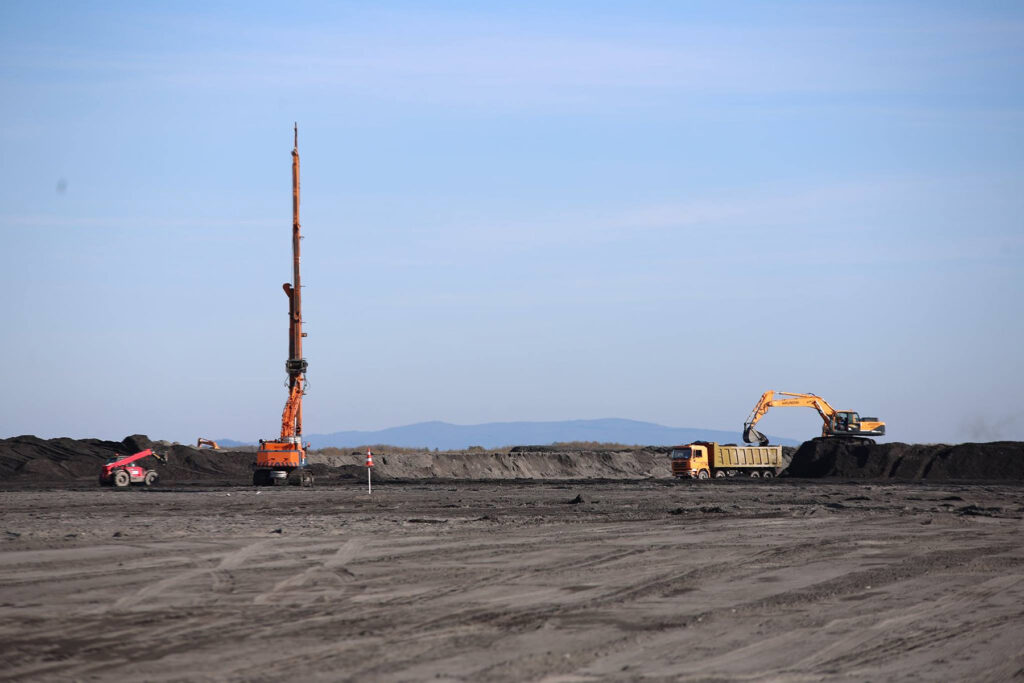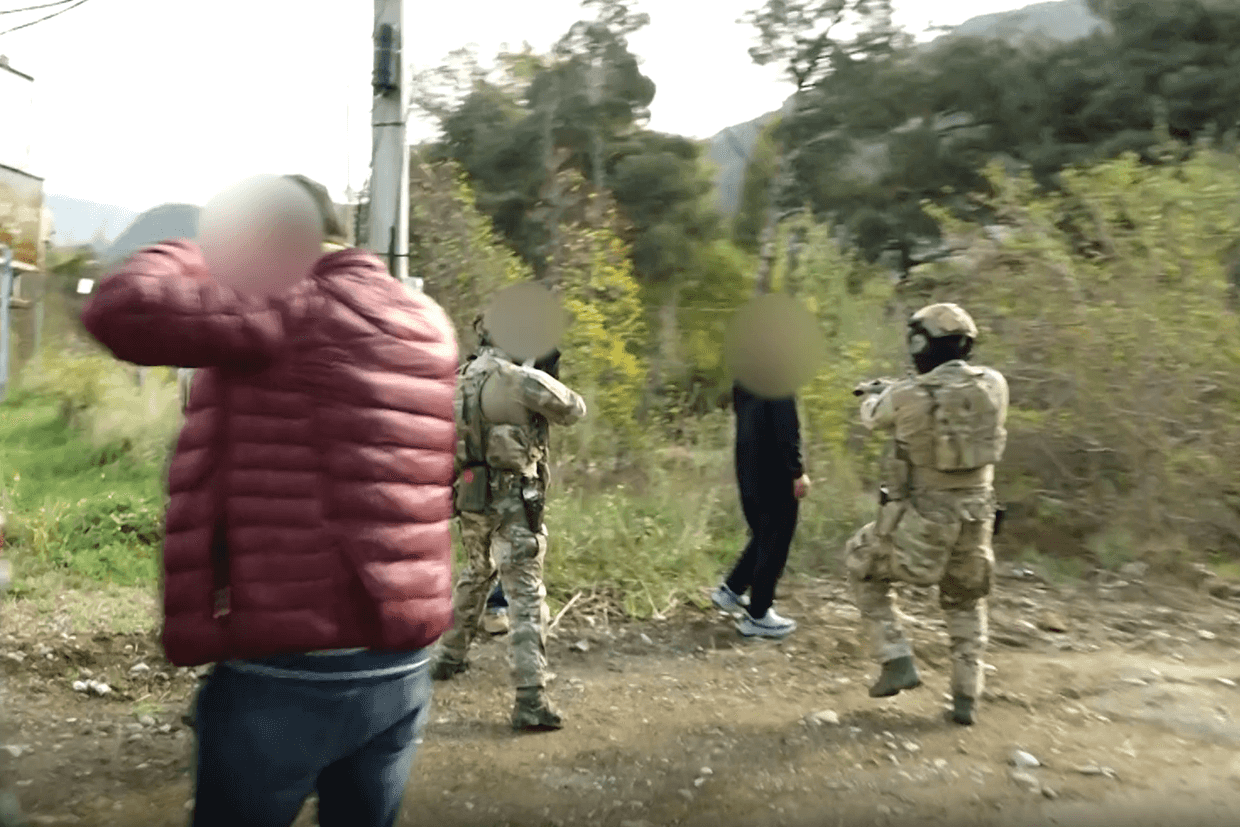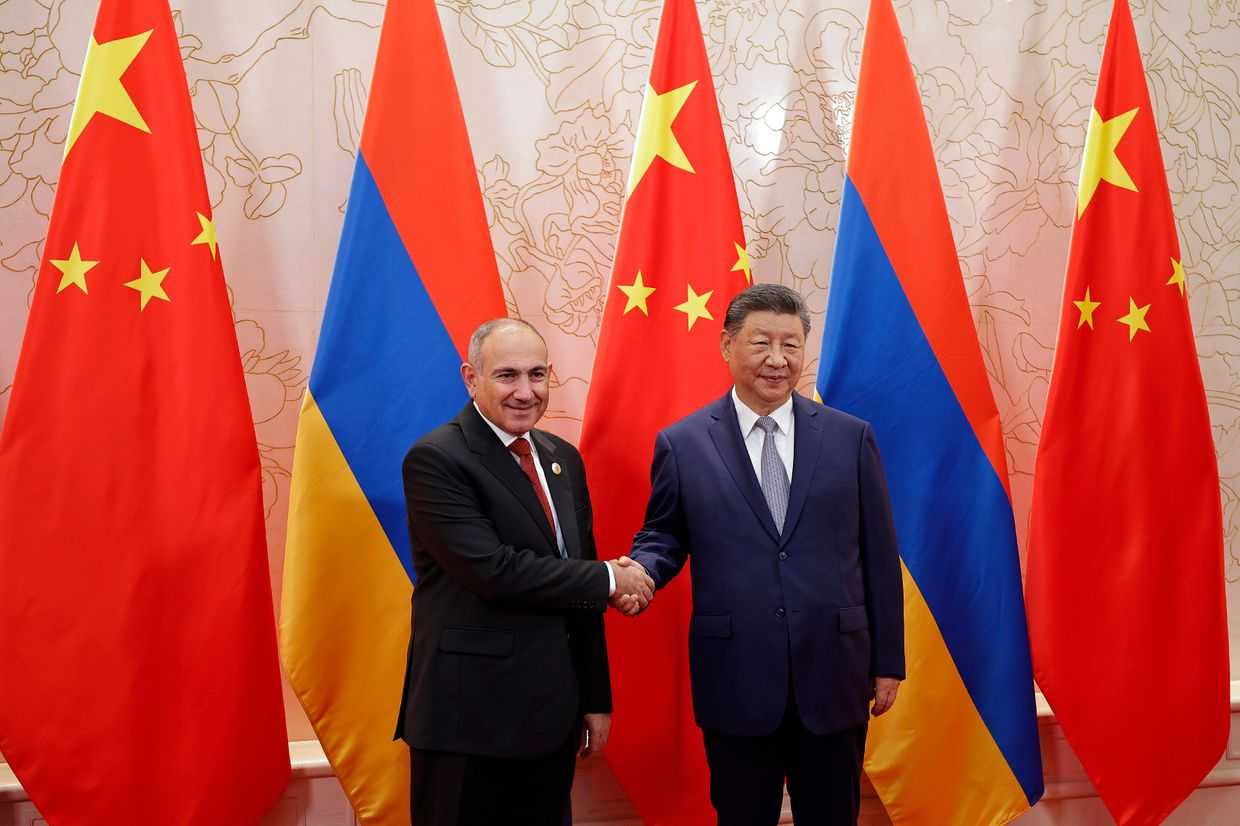
The Georgian and Chinese leaders have agreed to ‘elevate bilateral relations to a strategic partnership’, during a week-long visit by Prime Minister Irakli Gharibashvili to China.
The PM was officially in China to attend the 31st World Summer Games of the International University Sports Federation. According to Georgian media, information about the agreement was not announced in advance.
Critics have warned the agreement could endanger the country’s relations with the West.
Following a meeting with Chinese Premier Xi Jinping on 28 July, the two leaders released a joint statement on Monday outlining areas of political, economic, cultural, and international cooperation.
It stated Georgia’s support for a raft of Chinese foreign policy initiatives, including their ‘Global Civilization Initiative’, ‘Global Development Initiative’, and ‘Global Security Initiative’.
It also highlighted Georgia’s support for the Chinese ‘Belt and Road’ economic initiative, with the two leaders signing a separate agreement in this regard.
Gharibashvili received a warm welcome upon landing in Chengdu.
Speaking at the China-Georgia Business Forum in Beijing on 31 July, Gharibashvili appeared to court Chinese investment in a number of Georgian infrastructure projects, including the troubled Anaklia Deep Sea Port project.
In an apparent barb aimed at the West on 28 July, the Chinese leader said ‘no matter the developments on the international arena, the attitude of China towards developing its relations with Georgia will not change’.
‘Georgia again takes another turn’
Georgian opposition figures were quick to warn of the danger that partnering with China could have on relations with the West.
Tamaz Datunashvili, a member of the opposition Lelo party, said it was an attempt to ‘sabotage’ Georgia’s EU membership bid. The EU is expected to reexamine Georgia’s application for candidate status at the end of the year.
Datunashvili also linked the agreement with the geopolitical situation surrounding the Russian invasion of Ukraine.
‘China is the main financier of Russia’s war, and one of the obstacles of sanctioning Russia’, he said. ‘In this situation, a strategic partnership with China means a strategic partnership with Russia’.
Others gave a more mixed assessment, with Roman Gotsiridze of the cross-party Eurooptimists group in parliament welcoming economic ties with China while warning Georgia should ‘be careful’ not to create such ties at the expense of relations with the West.
Sergo Chikhladze of Strategy Aghmashenebeli insisted that parliament should have a say in any strategic relationship with China.
Civic Idea, a think tank headed by former Georgian Defence Minister Tina Khidasheli, also warned of the danger of the agreement. Reacting to Georgia’s endorsement of China’s foreign policy initiatives, the organisations said that ‘such a blank commitment from a country that has constitutionally established foreign policy priorities, joining NATO and EU, is extremally irresponsible and largely confusing.’
They argued that Gharibashvili’s ‘exchange of governance practices with authoritarian China’ was a message to Europe that ‘If you are not ready to accept us as we are, there is always China’.
‘A strategic partnership with Communist China, amid the ambiguous and harmful policies pursued by the Georgian government regarding NATO and the West in general, is contrary to the country’s strategic and foreign policy goals set by the Constitution and threatens national security’, they concluded.
The US State Department responded by telling Formula that they would monitor how Georgia’s relations with China develop further.
The US Ambassador to Georgia, Kelly Degnan, told journalists that while it was up to the Georgian government to decide the nature of their relationship with China, many countries were abandoning China’s Belt and Road initiative.
Viola Von Cramon, a member of the European parliament and outspoken critic of the Georgian Government, wrote on Twitter in response that Georgia ‘again takes another turn’.
While everyone else tries to become more economically independent from 🇨🇳
🇬🇪 again takes another turn.Helping 🇷🇺 with circumventing the sanctions, deepening the economic ties with 🇨🇳 that all looks like the right turn towards Europe / 🇪🇺 … *irony off* #StandWithUkraine https://t.co/CBrJff8NNm
— Viola von Cramon 🇺🇦🇪🇺 (@ViolavonCramon) July 31, 2023
Speaking to OC Media, Tornike Sharashenidze, a professor of international relations at the Georgian Institute of Public Affairs (GIPA), dismissed talk of Georgia trying to ‘blackmail’ the West.
‘Georgia has no resources to blackmail, but if Georgia has good relations with as many big players as possible, it will have a stronger position with everyone — both enemies and friends’, he said.
‘It is possible that Georgia is trying to balance its foreign policy […] there is nothing catastrophic about it.’
Sharashenidze did say that deepening relations with China could create difficulties in Georgia’s relations with the US, but that the US should consider why Georgia might look elsewhere.
‘This policy of Georgia […] is caused by the fact that we do not have security guarantees from anyone, unfortunately. America should also take this into account. If we had a bilateral security format [from the US] like, for example, South Korea, then it would be completely different.’
‘The only counterbalance to the occupier — Russia — in the region is America […] It would be an ideal situation for us to have American security guarantees.’
‘When you have that, it is clear that you will no longer be afraid, and you will no longer run sometimes to China and sometimes [elsewhere]’, he said.
Sharashenidze said that unlike with America, warming ties with China were unlikely to damage relations with the EU.
‘I don’t think so with the European Union, [they] themselves have declared a strategic partnership with China.’
Sharashenidze said it was difficult to predict how an increase in Chinese political influence in Georgia might play out, but ‘given that China is working very slowly, it is in no hurry, I think that it is in no hurry to think about political or military influence in Georgia, this is very far away’.
The Anaklia Port
One of the results of the Georgian PM’s visit to China appears to have been the possibility of securing Chinese funding for the Anaklia Deap Sea Port project.
First announced in 2014 and with hundreds of millions of lari already invested, including by current opposition figure Mamuka Khazaradze, construction has stalled following a number of scandals, including a rival port project in Poti that appeared to have been backed by Georgian Dream founder Bidzina Ivanishvili.

The chair of the parliament, Shalva Papuashvili, welcomed the possibility of Chinese investment in Anaklia.
‘Georgia’s government acts in the interests of the country […] Why should we categorically rule out China’s participation in the Anaklia port project? Why is it a threat? If the opposition thinks that China is a threat to Georgia, it is very interesting’, he said.
‘The Anaklia port is a state project and there are no question marks that the project can be handed over to anyone. However, of course, we do not see any danger in Chinese investments. Not only do we see no danger, but we welcome their investments. Any investment from China is welcome’, he said.
Tornike Sharashenidze said that construction would require ‘either American or, to a lesser extent, Chinese’ money, because ‘no one else will invest’ in the project.
Sharashenidze said that economic links between Georgia and China had been developing ‘for a long time’, citing a 2017 free trade agreement between the two.
The Civic Idea think tank was more critical of possible Chinese investments, claiming that it was ‘no secret’ that the tender to develop the Anaklia project had been prolonged in order to court Chinese money.
‘Judging from the developments and statements made, we expect that the winner be selected and revealed during the already announced IVth Silk Road Forum in Georgia at the end of October in the presence of high-level Chinese dignitaries and around 2,000 delegates’, they said.
‘The event will be used as an occasion for overshadowing developments related to European Union Commission’s opinion about Georgia’s candidate status expected for October as well.’









